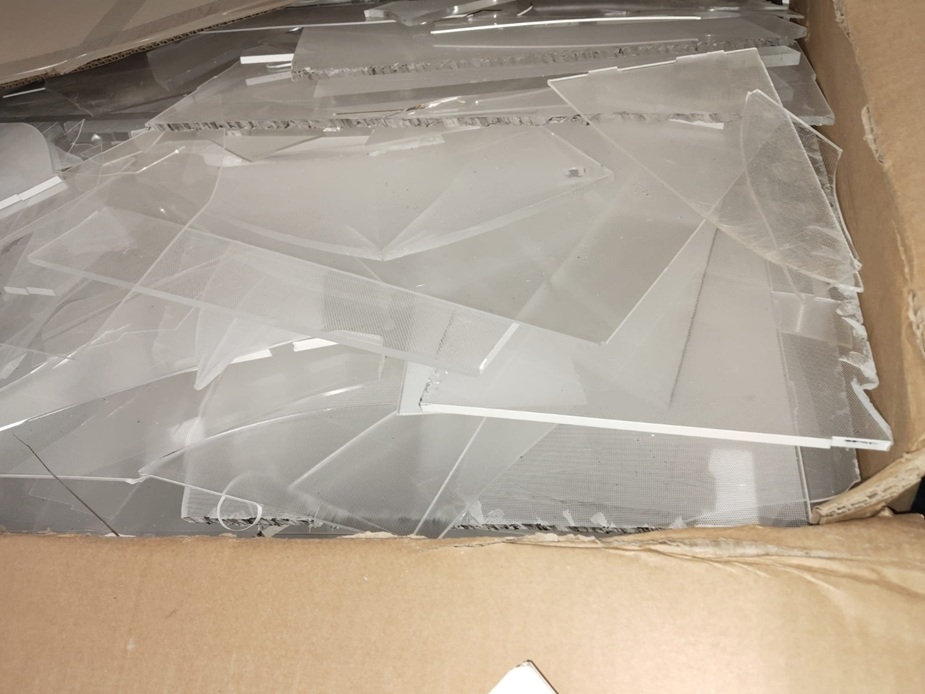

Tuesday 09/09/2025

Clean and homogenous plastic feedstock imported by licensed recyclers: polymethyl methacrylate (PMMA) acrylic sheets
PETALING JAYA, Selangor, Sept 9 (Bernama) -- The Malaysian Plastics Manufacturers Association (MPMA) acknowledges the recent statement by YB Datuk Seri Johari Abdul Ghani, Acting Minister of Natural Resources and Environmental Sustainability, announcing a complete halt to plastic waste imports to prevent Malaysia from becoming a dumping ground.
MPMA fully supports the government’s intention to protect the environment. However, we urge the government to carefully weigh the economic and environmental implications of a blanket ban and above all, to distinguish between illegal dumping and responsible recycling. A total ban on plastic imports would unfairly punish licensed recyclers who operate under strict compliance and cripple a vital green industry, while the real culprits, the illegal operators, continue to tarnish Malaysia’s reputation.
Such a ban would also prohibit the importation of clean, homogeneous plastic feedstock that is legally regulated, fully traceable, and closely monitored locally by the Ministry of Investment, Trade and Industry (MITI), Department of Environment (DOE) and Royal Malaysian Customs Department, and globally governed by the Basel Convention, in which Malaysia is a party to it. This feedstock is not “waste to be discarded,” but a critical raw material for Malaysia’s recycling and manufacturing sector. It is essential for achieving upcoming Extended Producer Responsibility (EPR) targets and recycled content legislation that are central to Malaysia’s sustainability commitments.
Recyclers Are Not Hiding Behind Circular Economy
Recyclers are not “hiding behind the circular economy” or irresponsibly importing waste into the country. The reality is that imports are needed to fulfill demand, optimise recycling capacity, and supplement the insufficient volume and inconsistent quality of local feedstock. Licensed recyclers are permitted only to import clean, homogeneous plastic feedstock with 98% purity or higher, strictly regulated by the Malaysian government to ensure full traceability and environmentally sound, high-quality recycling. This strict process of Certificate of Approval (COA) issued by SIRIM QAS is under the purview of MITI which was extensively explained to the Malaysian cabinet during the Special Chamber Sitting, Second Meeting of the Fourth Session of the Fifteenth Parliament on 18 August 2025. MPMA fully supports the ban on importing mixed and unsorted municipal waste into the country, but stresses that clean, homogenous feedstock should not be treated the same, as it is a valuable raw material essential for Malaysia’s recycling and circular economy goals.
Plastics Are Resources, Not Waste
Plastics are durable by design, which makes them difficult to degrade. However, this durability is precisely why plastics must be recycled and kept in circulation, not discarded. A well-regulated recycling sector converts plastics into high-quality raw materials for key industries such as automotive, electronics, food and beverage, and healthcare, reducing dependence on virgin plastics and supporting Malaysia’s sustainability goals. With global brands demanding more recycled content to meet Environmental, Social and Governance (ESG) commitments, the recycling industry is indispensable to Malaysia’s green economy. However, the absence of certain plastic types in local streams and limited separation at source mean that responsible imports of clean, high-quality feedstock remain essential to ensure consistent supply and high-grade recycling output.
Economic and Environmental Stakes of a Blanket Ban
Malaysia’s recycling industry supports manufacturing, sustains thousands of green jobs, and delivers significant environmental benefits. Yet, under current economic pressures, a blanket ban on imports would cripple the sector by cutting off clean feedstock that is not sufficiently available locally. This risks shrinking the industry, discouraging investment and derailing Malaysia’s circular economy agenda.
A Call for Balanced Policy and Stronger Enforcement
MPMA strongly supports decisive enforcement against illegal operators through enhanced pre-shipment inspections, stricter licensing and stronger traceability measures. However, we humbly call upon the Ministry to engage stakeholders before implementing a total ban and to explore balanced, well-regulated solutions that safeguard both environmental integrity and economic resilience.
We stand ready to collaborate with the Minister and his Ministry to: